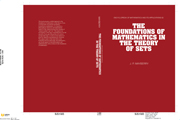2 - Simple Arithmetic
from Part One - Preliminaries
Published online by Cambridge University Press: 05 March 2012
Summary
The origin of the natural numbers
The natural numbers 0,1,2,…, as we now understand them, are not simply given to us as part of the “raw data” of mathematics. On the contrary, these numbers were invented, indeed invented fairly recently, along with rational, irrational and negative numbers. There is, in fact, something distinctly unnatural about our “natural” numbers.
This is so important a matter that I want to make doubly sure that no one misunderstands me: when I say that these numbers were invented I am making a particular, historical point, not a general, philosophical one. It is not my intention to resurrect the philosophical claim that mathematics is invention not discovery (surely it is both), nor the more particular claim that the natural numbers are “mental constructions” or anything of that sort. On the contrary, what I am talking about is an actual, historical process of invention that began sometime in the late middle ages and culminated in the late seventeenth century, by which time mathematicians had arrived at what is essentially our modern conception of real number. In the course of this process, the concept of number was drastically altered – no, that is not strong enough: in the course of this process the word “number” was stripped of its customary and traditional meaning to be assigned an entirely new meaning, one which had scarcely anything in common with the original.
Information
- Type
- Chapter
- Information
- The Foundations of Mathematics in the Theory of Sets , pp. 17 - 64Publisher: Cambridge University PressPrint publication year: 2001
